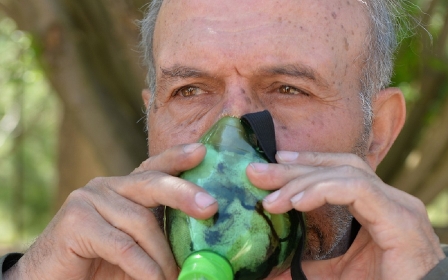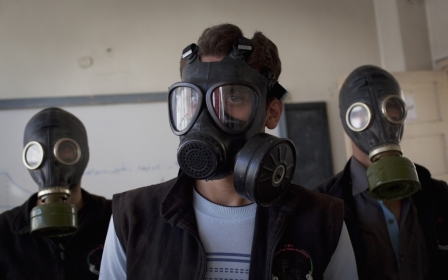Chemical inspectors find traces of deadly precursor in Syria

Chemical weapons inspectors have found traces of precursors for toxic agents at a site in Syria that the government had not declared to weapons watchdogs, according to EU documents and reports.
Experts from the Hague-based Organisation for the Prohibition of Chemical Weapons (OPCW) said samples that inspectors took in December and January tested positive for chemicals needed to make deadly VX and sarin nerve agents, Reuters reported.
"This is a pretty strong indication they have been lying about what they did with sarin," one diplomatic source told Reuters. "They have so far been unable to give a satisfactory explanation about this finding."
Maris Klisan, Latvia's permanent representative to the OPCW, underlined the organisation's concerns about the findings and Damascus's handling of its chemical weapons issue at a closed-door meeting on Thursday.
"Last but not least, the recent finding of the (OPCW) declaration assessment team, showing traces of precursors of VX and sarin were found on a site where they were not supposed to be, figure high on that list," Klisans told the delegates, delivering the statement on behalf of the EU.
"The EU is particularly concerned that, due to the above, Syria may still hold chemical weapons materials or undeclared chemical weapons agents," added the statement, which was later published on the OPCW's website.
OPCW spokesman Peter Sawczak declined to give further details, saying he was bound by confidentiality on the matter.
Ghouta chemical attack
After an August 2013 sarin attack outside Damascus that much of the international community blamed on President Bashar al-Assad's government, the country agreed to turn over its chemical arsenal.
The US had threatened military action against Damascus over the attack, but held off following the chemical disarmament agreement.
A total of 1,300 metric tonnes of chemical weapons have been removed from Syria, with the majority being destroyed aboard the US Navy ship MV Cape Ray.
The US, however, on Wednesday asked the UN Security Council to set up an investigation on the use of chemical weapons in Syria following reports of chlorine gas attacks.
Britain, France and the US have accused Assad's forces of carrying out the chlorine attacks, using barrel bombs thrown from helicopters.
The three countries argue that only the Syrian government has helicopters, but Russia maintains there is no solid proof that Damascus is behind the attacks.
The move by the US follows a Security Council meeting last month during which Syrian doctors gave graphic first-hand evidence of chlorine attacks.
A video of the doctors treating children after a chlorine bomb attack on the village of Sarmin in Idlib province left many council members in tears.
Said Latvian representative Klisans, delivering the statement: "The EU stresses that those responsible for these illegal acts must be held accountable."
Stay informed with MEE's newsletters
Sign up to get the latest alerts, insights and analysis, starting with Turkey Unpacked
Middle East Eye delivers independent and unrivalled coverage and analysis of the Middle East, North Africa and beyond. To learn more about republishing this content and the associated fees, please fill out this form. More about MEE can be found here.




